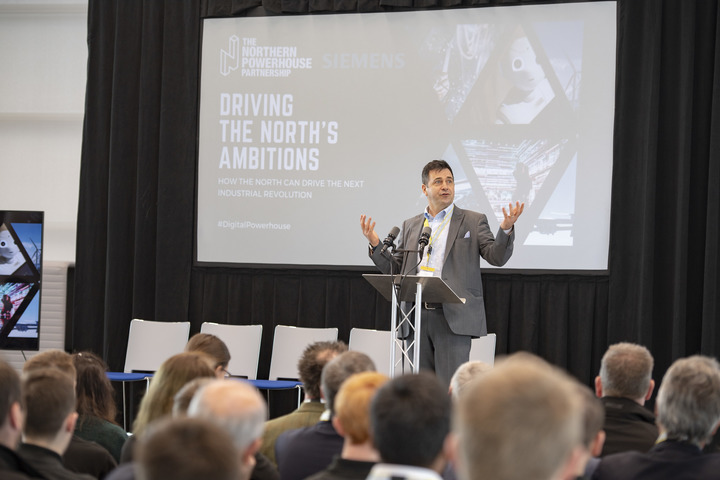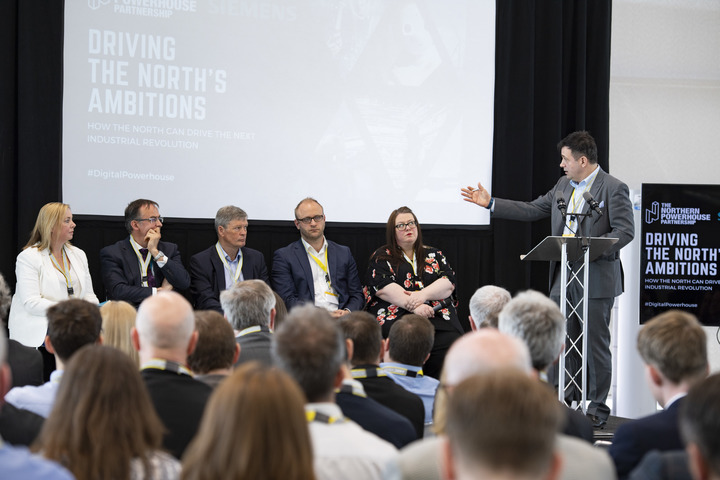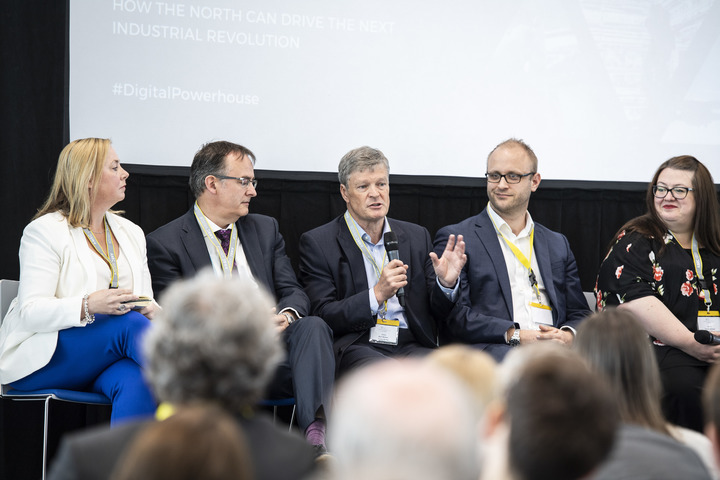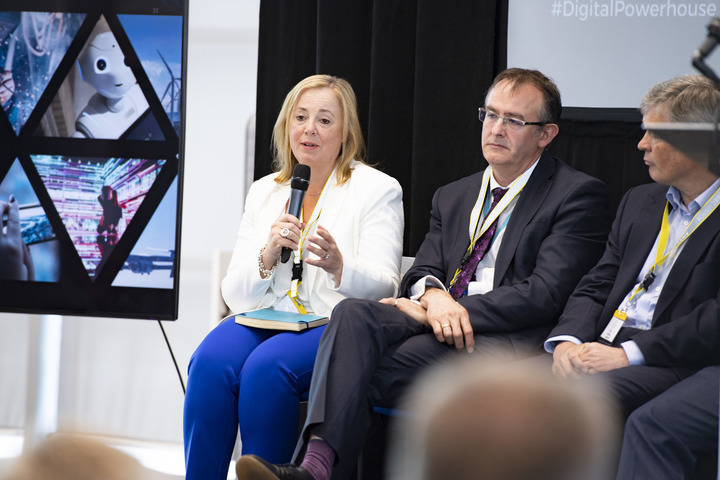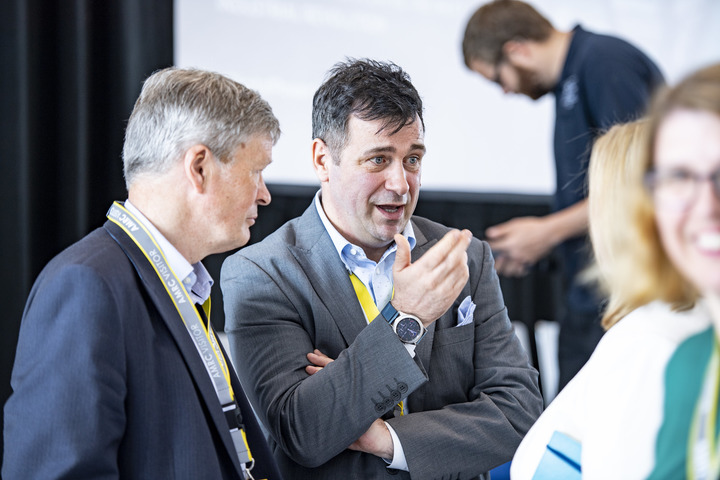Northern Powerhouse ‘must lead the next Industrial Revolution’
10 May 2018- Call for business to embrace digital, embedding technology, data and information into everything they do.
- Only the North has the history, the foundations and the people capable of leading the next Industrial Revolution, Siemens UK CEO Professor Juergen Maier will say.
- In spite of the need to ‘go digital’ in manufacturing, 76 per cent of SMEs still have don’t understand how to harness the next Industrial Revolution.
A clarion call for the North of England to lead the Fourth Industrial Revolution with its legions of smaller manufacturers was made today (10 May) by a key industrial advisor to the Government’s Industrial Strategy team.
Juergen Maier, CEO of Siemens UK and author of the Made Smarter Review, urged industry across the North to commit to embedding technology, information and data into everything they do.
Speaking to an invited audience of northern industrialists and young engineers at the University of Sheffield’s Advanced Manufacturing Research Centre (AMRC), the man behind the industrial digitalisation review said a new digital Industrial Revolution could see 175,000 new jobs over 10 years, mainly skilled jobs in engineering, software and design.
He said: “Leading the next Industrial Revolution cannot be done from Whitehall; it cannot be done from London. It can only be done in the North.
“This city of Sheffield was world-renowned for high-quality steel production, but fell into decline as the industry collapsed and cheaper alternatives across the world became available. We should all be determined that we do not let this happen again.
“This is our chance to reverse that decline and create the high-skilled jobs for generations to come. Through embracing technology we can lead the world once again – exporting new Northern industries all over the globe.”
“Many of our smaller firms have led the way. Now we want thousands more to come on board. There is nothing to fear but plenty to gain.”
His sentiments were echoed by Professor Sir Keith Burnett, President and Vice-Chancellor of the University of Sheffield: "As the cradle of the first industrial revolution, the north of England sent new products to the world. Now we need the infrastructure, research, innovation and skills which will enable us to lead in the era of Industry 4.0.
“This means new approaches to bringing together world-class research and teaching with global companies and their supply chains, creating new products and reshoring production. This is an area where the University of Sheffield is leading the way, working with Boeing, McLaren, Siemens and Rolls-Royce to make the Northern Powerhouse a reality.”
But Maier said that a major obstacle to this revolution remains a lack of awareness of among smaller and medium sized companies (SMEs) – only 8 per cent of manufacturing companies understand industry 4.0 or digitalisation, and 76 per cent have no understanding at all. This, coupled with a fear of change and automation, has led many companies to shy away from incorporating cutting-edge technology.
Maier was speaking at the AMRC’s flagship Factory 2050, where industry comes to de-risk the implementation of digital technologies, from robotics and automation, virtual and augmented reality, and Artificial Intelligence and machine learning.
Ben Morgan who heads Factory 2050’s Integrated Manufacturing Group amplified the clarion call from Siemens’ CEO. “Juergen’s message is a wake-up call for industry across the North of England. If we don’t exploit these technologies to the full, manufacturing in the UK will continue to be vulnerable to competition from early adopting countries across Europe and the Far East.
“Ensuring that companies across the North and the Midlands get access to the productivity benefits of the next Industrial Revolution is vital if the UK is to remain globally competitive. The University of Sheffield AMRC has a global reputation for supporting companies in de-risking this technology; so much so that we are now looking to expand with centres in the North West, North Wales and the Midlands, giving local SMEs the access to these technologies on their doorstep, which is what so many of them need.
“We are also extending our own network of SME engagement specialists to identify and work with companies that are thinking about the benefits and risks of adopting the technologies of the Fourth Industrial Revolution.”
Siemens, who are a partner at the AMRC, have also demonstrated their commitment to innovation and manufacturing in the North - recently announcing plans for a proposed £200m state-of-the-art factory in Goole, East Yorkshire, to manufacture and commission the trains of the future.
Professor Maier’s speech was preceded by a roundtable discussion on skills at the Sheffield UTC, exploring how to ensure the Northern Powerhouse can deliver a skilled workforce to tackle the jobs of the future.
Northern Powerhouse Partnership Director Henri Murison said: “The next Industrial Revolution is going to transform the lives of future generations; leading this technological revolution from now will change the future for those growing up here today.
“The Northern Powerhouse Partnership exists to make sure the North comes together to drive the next Industrial Revolution; providing future generations with the skills and expertise to provide answers to the world on embedding technology into how we make things, and how we live.”

